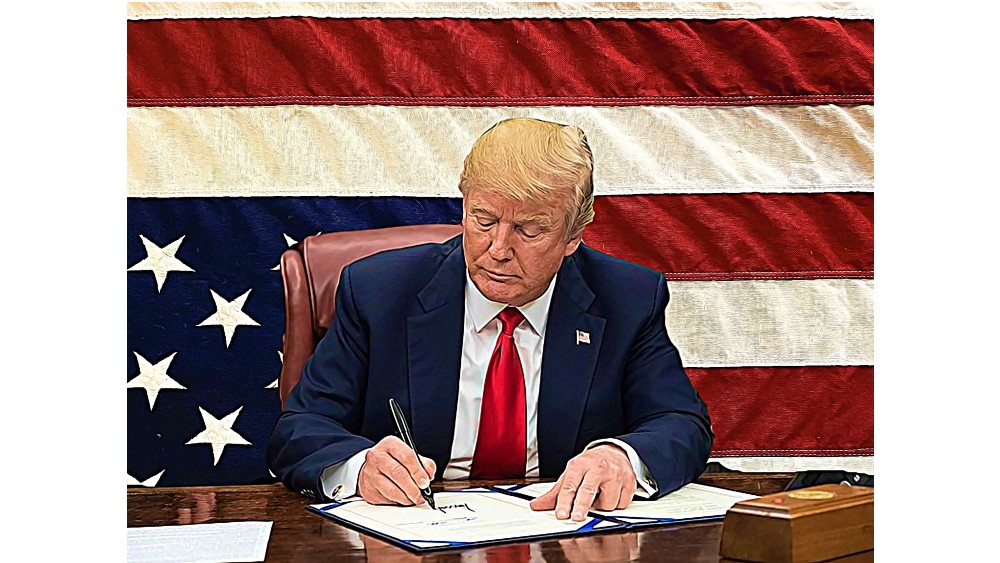Trump did not violate the law because he could not violate the law
Conservatives pointing to Hillary, Biden, and Pence (all admittedly guilty) to show unfair treatment to Trump, are forgetting that Trump is irrefutably innocent.
(This is a reprint of a post I wrote that originally ran at American Thinker.)
Those conservatives rightly outraged at the Trump indictment keep comparing his treatment to that given to Hillary, Biden, and Pence, each of whom admitted to violating national security laws. That’s the wrong argument because Trump is not similarly situated to those lawbreakers. Instead, because he was president when he took possession of the documents, Trump cannot be guilty of the crimes with which he’s charged.
It starts with the Constitution, which created three equal branches of government: The legislative branch (Art. I), the executive (presidential) branch (Art. II), and the judiciary (Art. III). As part of his authority as the nation’s chief executive, the Art II president is also commander-in-chief of the military.

Image by Andrea Widburg
There are three analytical strands at work here. First, as Conservative Tree House explains, the Espionage Act of 1917, which is the basis for the charges against Trump, was enacted long before the document classification scheme began in 1951. CTH notes that isn’t arguing that the documents were classified; it’s arguing that the documents in Trump’s possession are “vital to the defense security of the United States.”
Mark Wauck sums up the problem:
CTH is absolutely correct that the Trump situation is NOT what the Espionage Act purports to be about. The use of the Espionage Act has regularly been prone to abuse, and it has always had its critics because of the very broad and vague language, such as “relating to”. Hopefully Trump’s lawyers will attack from this angle in pre-trial motions.
Second, the real issue in the indictment is whether Trump correctly handled documents under the Presidential Records Act, which is not a criminal violation (h/t Mark Wauck):
Those are great arguments, but let me give both more heft with the third point, which applies whether the Espionage Act or the Presidential Records Act is at issue: A president’s power whether or not to treat documents as essential to national security supersedes anything either Congress or his own employees in the administrative state can do.
Normally, of course, the president is subject to the duly passed laws of the United States Congress. However, regarding national security, the president cannot be subject to Congress. He has plenary, or absolute, power in that area.
The president’s authority over national security matters has been recognized at least since the end of WWII, when, as the court explained in National Federation of Employees v. United States, 688 F.Supp. 671 (D.D.C. 1988), Truman exercised that authority to classify documents:
Long before nuclear weapons, satellites, and orbiting laser defense systems, the President, pursuant to his Article II powers, undertook to defend national security by limiting access to and disclosure of sensitive information. See National Security and Civil Liberties, [citation]. After World War II, President Truman laid the foundation for the current system of classifying information possessed by the Executive Branch. [Citation.]
In other words, national security and the classification system are the president’s bailiwick, and Congress, as a co-equal branch of government, cannot constrain that authority.
In Cafeteria Workers v. McElroy, 367 U.S. 886 (1961) (holding that a naval security officer could act immediately upon the Executive branch’s plenary national security power to remove an employee), the Court concluded that, when a branch of government has plenary power, even most due process requirements must fall before it, especially when national security is involved:
As these and other cases make clear, consideration of what procedures due process may require under any given set of circumstances must begin with a determination of the precise nature of the government function involved, as well as of the private interest that has been affected by governmental action. Where it has been possible to characterize that private interest…as a mere privilege subject to the Executive’s plenary power, it has traditionally been held that notice and hearing are not constitutionally required.
Lastly, in Department of the Navy v. Egan, 484 U.S. 518 (1988), the Court determined that a legislatively established Merit Systems Protection Board lacked authority to review an employee’s removal on national security grounds, because national security questions are solely the president’s prerogative, and cannot be subject to congressional limitations:
The President, after all, is the “Commander in Chief of the Army and Navy of the United States.” U.S.Const., Art. II, § 2. His authority to classify and control access to information bearing on national security and to determine whether an individual is sufficiently trustworthy to occupy a position in the Executive Branch that will give that person access to such information flows primarily from this constitutional investment of power in the President, and exists quite apart from any explicit congressional grant.
The president is the ultimate authority on national security. Congress cannot decide for him what is classified and what isn’t nor can Congress or executive branch employees decide whether he made reasonable national security decisions. Likewise, people who work for agencies such as the National Archives, which started the fuss, cannot claim that laws or regulations override their boss’s plenary constitutional power. Once Trump took those documents from the White House while still president, he effectively and finally determined that they did not implicate national security.
In this, Trump’s situation differs greatly from that of Hillary Clinton’s, Joe Biden’s, and Mike Pence’s. All have admitted to violating congressional national security laws, and none had the authority to do so. Comparing them to Trump is not an apples-to-apples comparison showing the same law unequally applied. It is a felon-to-innocent man comparison, with Clinton, Biden, and Pence deserving lifetime lock-up and Trump being free from all charges of wrongdoing.
The upside-down flag in the image is deliberate. We are a nation in deep distress.

